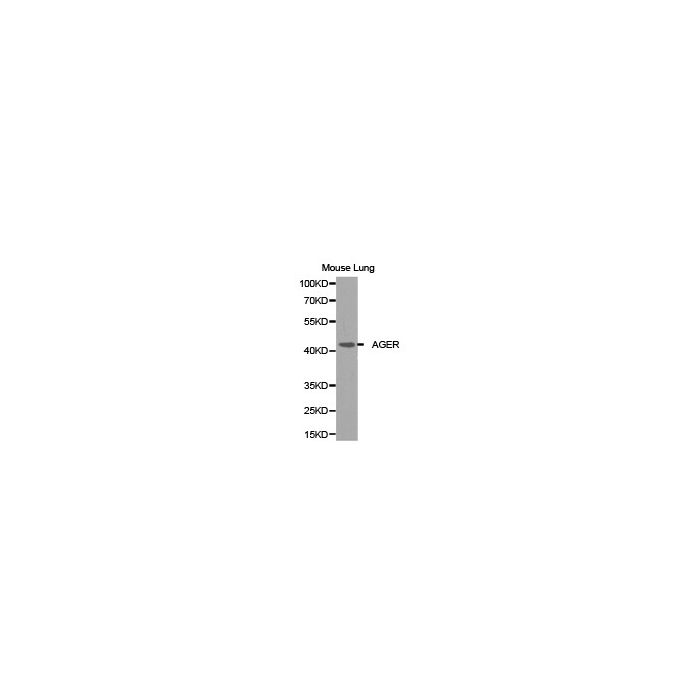AGER polyclonal, anti-human, mouse, rat
€388.00
In stock
SKU
BS6515
Background:
Advanced glycosylation end products of proteins (AGEs) are nonenzymatically glycosylated proteins that are associated with a variety of conditions, including diabetes and other vascular disorders, as well as amyloidosis. These proteins regulate cellular functions via specific cell surface acceptor molecules, such as RAGE (receptor for advanced glycosylation end products). RAGE is a type 1 membrane protein that is found on the surface of endothelial cells, mononuclear phagocytes and vascular smooth muscle cells. Binding of AGEs to RAGE results in the induction of cellular oxidant stress and activation of the transcription factor NFkB. Evidence suggests that the induction of oxidant stress results in the activation of an intracellular cascade involving p21 ras and MAP kinase, which leads to activation of transcription.
Alternative Name:
Receptor for advanced glycosylation end products, Advanced glycosylation end product-specific receptor, AGER, RAGE
Application Dilution: WB: 1:500 - 1:2000
Specificity: AGER polyclonal antibody detects endogenous levels of AGER protein.
Immunogen:
Recombinant full length Human AGER.
MW: ~43 kDa
Swis Prot.: Q15109
Purification & Purity:
The antibody was affinity-purified from rabbit antiserum by affinity-chromatography using epitope-specific immunogen and the purity is > 95% (by SDS-PAGE).
Format:
1mg/ml in PBS with 0.1% Sodium Azide, 50% Glycerol.
Storage:
Store at 4°C short term. Aliquot and store at -20°C long term. Avoid freeze-thaw cycles.
For research use only, not for use in diagnostic procedure.
Advanced glycosylation end products of proteins (AGEs) are nonenzymatically glycosylated proteins that are associated with a variety of conditions, including diabetes and other vascular disorders, as well as amyloidosis. These proteins regulate cellular functions via specific cell surface acceptor molecules, such as RAGE (receptor for advanced glycosylation end products). RAGE is a type 1 membrane protein that is found on the surface of endothelial cells, mononuclear phagocytes and vascular smooth muscle cells. Binding of AGEs to RAGE results in the induction of cellular oxidant stress and activation of the transcription factor NFkB. Evidence suggests that the induction of oxidant stress results in the activation of an intracellular cascade involving p21 ras and MAP kinase, which leads to activation of transcription.
Alternative Name:
Receptor for advanced glycosylation end products, Advanced glycosylation end product-specific receptor, AGER, RAGE
Application Dilution: WB: 1:500 - 1:2000
Specificity: AGER polyclonal antibody detects endogenous levels of AGER protein.
Immunogen:
Recombinant full length Human AGER.
MW: ~43 kDa
Swis Prot.: Q15109
Purification & Purity:
The antibody was affinity-purified from rabbit antiserum by affinity-chromatography using epitope-specific immunogen and the purity is > 95% (by SDS-PAGE).
Format:
1mg/ml in PBS with 0.1% Sodium Azide, 50% Glycerol.
Storage:
Store at 4°C short term. Aliquot and store at -20°C long term. Avoid freeze-thaw cycles.
For research use only, not for use in diagnostic procedure.
| Is Featured? | No |
|---|
Write Your Own Review

